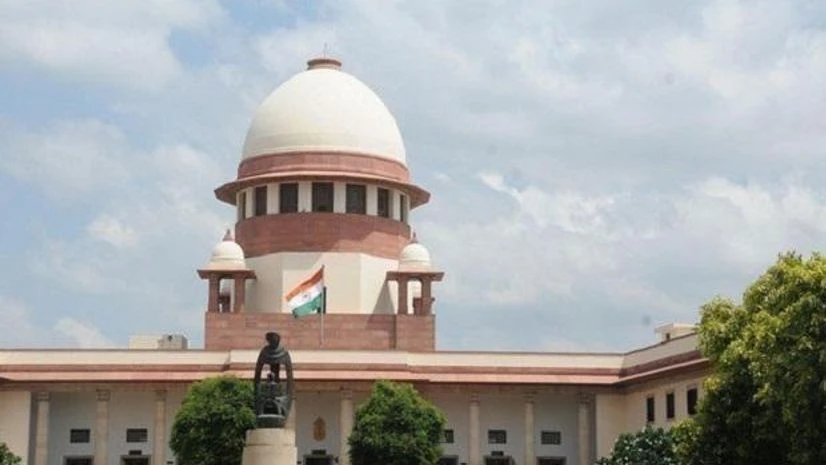"We are being befooled by the executive", was how a "frustrated" Supreme Court said today while ruing the fact that around Rs one trillion worth of funds meant to protect the environment and benefit the people, was being diverted for other purposes.
Severely criticising the government, the apex court observed that it had "trusted" the executive, but the authorities do not work. And when the court says something, it is said that there is "judicial overreach and activism".
A bench, comprising Justices Madan B Lokur and Deepak Gupta, made it clear that this huge amount of money, collected under various funds created on the apex court's orders for protection of environment, was to be used only for environmental purposes and benefit of the people.
"It is very clear that the amount was used for purposes, other than what it was entrusted. How far you want the court to go? We trusted the executive but they say they will do whatever they want," the bench said.
"First, we have to catch them that you have diverted the money and betrayed the trust. Are we policemen or investigating officers? We are not talking about a small amount," the bench said, adding, "It is very, very frustrating".
It said around Rs 117 billion was there in the Compensatory Afforestation Funds Management and Planning Authority (CAMPA), which was created under the top court's order, and the total amount lying in all such funds would come to around Rs one lakh crore.
However, one of the lawyers told the court that around Rs 110 bn from CAMPA was already spent and the total amount in it would be around Rs 50,000 crore.
More From This Section
"What we are supposed to do? You people do not work. It is completely beyond imagination," the bench observed, adding, "when we say, it is said there is judicial overreach and judicial activism. We are being befooled by the executive".
Additional Solicitor General (ASG) A N S Nadkarni, appearing for Ministry of Environment, Forest and Climate Change (MoEF&CC), said the court should tell the Union of India as to where and how these funds should be used and where it cannot be used.
"It (money) cannot be used for civic or municipal purposes," he said.
The bench noted that there was around Rs 900 bn to Rs one tr money which was lying with the Centre and the states under various heads consequent to the court orders and directed the secretary of MoEF&CC to make a compilation of all the funds, amounts lying in it as on March 31 this year.
"Secretary of the MoEF&CC is further directed to give us some indication as to how amount of Rs one lakh crore is intended to be utilised and areas where it should not be utilised," the bench said and posted the matter for further hearing on May 9.
The issue of usage of these funds for other purposes cropped up when the apex court perused an affidavit filed by the chief secretary of Odisha and observed that the money was being used for construction of roads, renovation of bus stands and science laboratory in colleges.
"This money is meant for the benefit of the people. It is to be utilised for that only and not as a part of your governance," the court told the counsel representing Odisha.
"It is part of your job as a state. Construction of roads and installing streetlight is your job as a state. People's funds cannot be used for it. Your total expenditure for social cause is not even five per cent," the bench said, adding, "we cannot permit you to do this. This money is for benefit of people and not for benefit of the government".
An advocate, assisting the court as an amicus curiae in the matter, said the money collected under these funds were to be used for welfare of tribals in Odisha.
The court allowed the request of Odisha's counsel for three weeks time to file further details and asked its chief secretary to remain present before it on the next date of hearing.
The bench also perused the affidavit filed by Meghalaya and pulled up the state for keeping the funds meant for welfare of the people only in the bank.
It also took exception to the fact that Meghalaya's affidavit did not even clearly mention how much amount collected under these funds was lying in the banks and observed, "it is too much".
"This is turning out to be a joke," the bench said and termed it a "very badly drafted" affidavit.
It granted four weeks to Meghalaya to file a better affidavit and asked the chief secretary of the state to remain present before it on the next date of hearing.
The court was also informed that Rs 1,301 crore amount has been collected in Delhi under the Environment Compensation Charge (ECC), which the apex court had earlier imposed on commercial vehicles entering Delhi in addition to the toll tax, and another Rs 70.5 crore was collected and lying with the Central Pollution Control Board (CPCB) under the cent cess levied on the vehicles having engine capacity of more than 2,000 cc.
The bench asked the Delhi government and MoEF&CC to apprise it as to how this money would be utilised.
The court was hearing a PIL filed in 1985 by environmentalist M C Mehta who had raised the issue of air pollution in the Delhi-National Capital Region (NCR).

)
